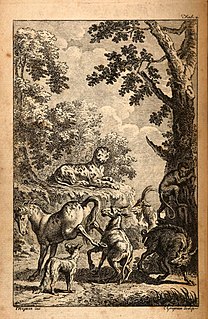A Quote by Charles Churchill
When satire flies abroad on falsehood's wing, Short is her life, and impotent her sting; But when to truth allied, the wound she gives Sinks deep, and to remotest ages lives.
Related Quotes
A wound in the soul, coming from the rending of the spiritual body, strange as it may seem, gradually closes like a physical wound. And once a deep wound heals over and the edges seem to have knit, a wound in the soul, like a physical wound, can be healed only by the force of life pushing up from inside. This was the way Natasha's wound healed. She thought her life was over. But suddenly her love for her mother showed her that the essence of life - love - was still alive in her. Love awoke, and life awoke.
Satire, whilst envy and ill-humor sway
The mind of man, must always make her way;
Nor to a bosom, with discretion fraught,
Is all her malice worth a single thought.
The wise have not the will, nor fools the power,
To stop her headstrong course; within the hour
Left to herself, she dies; opposing strife
Gives her fresh vigor, and prolongs her life.
Poesy is a beauteous damsel, chaste, honourable, discreet, witty, retired, and who keeps herself within the limits of propriety. She is a friend of solitude; fountains entertain her, meadows console her, woods free her from ennui, flowers delight her; in short, she gives pleasure and instruction to all with whom she communicates.
THAT crazed girl improvising her music. Her poetry, dancing upon the shore, Her soul in division from itself Climbing, falling She knew not where, Hiding amid the cargo of a steamship, Her knee-cap broken, that girl I declare A beautiful lofty thing, or a thing Heroically lost, heroically found. No matter what disaster occurred She stood in desperate music wound, Wound, wound, and she made in her triumph Where the bales and the baskets lay No common intelligible sound But sang, 'O sea-starved, hungry sea
Her little fists pummeled at him, and he accepted the abuse. Until he realized she’d made an improper fist and was actually hurting herself. He wound an arm around her waist, spun her and slammed her into the hard line of his body to still her. “Let me go!” “In a minute.” As she struggled, he pulled her thumb out from beneath her fingers and rearranged her fist. “Hit like this.” Done, he released her.
I pu my finger to her lips. "You have to hush a minute so that I can tell you something." "What?" she says, bites my finger. I look at her. "I love you." She gets quiet, the kind of quiet that sinks into her, softens her. "Well that works out," she finally says, her voice deeper and breathless, her eyes moist, "because I love you too." She turns, leans against my arm, and settles into me.
There is simply no dignified way for a woman to live alone. Oh, she can get along financially perhaps (though not nearly as well as a man), but emotionally she is never left in peace. Her friends, her family, her fellow workers never let her forget that her husbandlessness, her childlessness - her selfishness, in short - is a reproach to the American way of life.
Lyra learns to her great cost that fantasy isn’t enough. She has been lying all her life, telling stories to people, making up fantasies, and suddenly she comes to a point where that’s not enough. All she can do is tell the truth. She tells the truth about her childhood, about the experiences she had in Oxford, and that is what saves her. True experience, not fantasy - reality, not lies - is what saves us in the end.
After spending most of her life scanning the horizon for slights and threats, genuine and imagined, she knew the real threat to her happiness came not from the dot in the distance, but from looking for it. Expecting it. Waiting for it. And in some cases, creating it. Her father had jokingly accused her of living in the wreckage of her future. Until one day she'd looked deep into his eyes and saw he wasn't joking. He was warning her.
She liked being reminded of butterflies. She remembered being six or seven and crying over the fates of the butterflies in her yard after learning that they lived for only a few days. Her mother had comforted her and told her not to be sad for the butterflies, that just because their lives were short didn't mean they were tragic. Watching them flying in the warm sun among the daisies in their garden, her mother had said to her, see, they have a beautiful life. Alice liked remembering that.
Elizabeth Turnage is a woman of grit and grace who lives into the stories of those who join her in this odd journey of seeking God. She honors the complexity of life without ever losing sight of the simple glory of the cross. Her grasp of the mundane and miraculous and their interplay gives a depth and honesty to her story that tugs at the heart and gives us hope our story can matter. Her book will be a clarion call to bring our broken, holy, troubled, and glorious life to the author of all stories: Jesus.
My Auntie CeCe - I can kind of joke and say all I need to do is pray. But that's literally what she does... She lives what she sings. I've learned a lot about her in that way, so in bringing her to the stage, I knew what sort of demeanor she needed to have. Her songs are very reflective of who she is in real life.





































